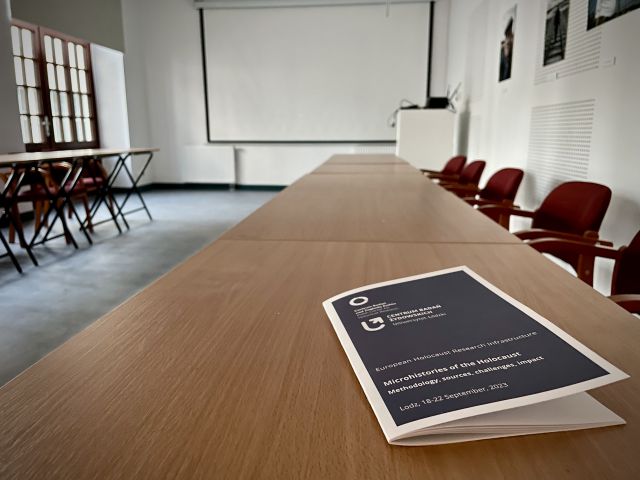EHRI Seminar in Poland "Microhistories of the Holocaust" Builds "Lasting Connections"
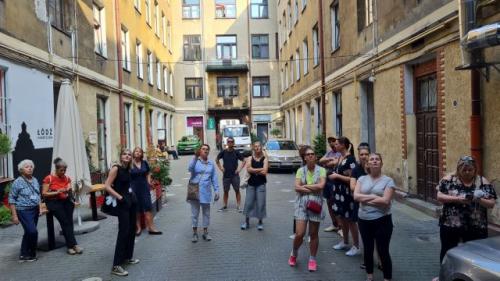
By Agnieszka Haska, Polish Center for Holocaust Research
From September 18-22, 2023, the Polish Center for Holocaust Research and the Center for Jewish Research, University of Lodz organized the five-day EHRI archival seminar “Microhistories of the Holocaust – methodology, sources, challenges, impact” at Lodz, Poland. Eleven scholars from Europe, Israel and the United States were invited to participate in the event to share experiences and discuss various problems in Holocaust research.
Transmission of knowledge
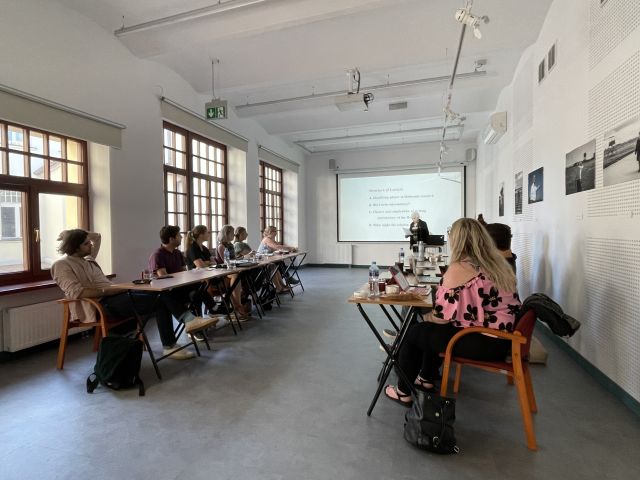 The seminar combined two main topics: the methodology of microhistory in Holocaust Studies and the transmission of knowledge from researchers to educators, memory projects and the general public. We discussed the methodological challenges and approaches to sources - opportunities and ways to use different materials, not only in traditional research but also combined with digital humanities tools and others –, such as the tools provided by EHRI, the EHRI Portal and Repository, which were presented by Dr. Anna Ullrich. During the seminar we also focused on relations between researchers and the wider public – how history influences the local communities in different ways and how to ‘translate’ research findings to common knowledge. This topic is very important not only in the microhistory approach of oral history as a source and when researchers are in close contact with local communities, but also in the context of the recently observed trends in academia of combining the roles of scholars with educators and activists to prevent Holocaust distortions and myths.
The seminar combined two main topics: the methodology of microhistory in Holocaust Studies and the transmission of knowledge from researchers to educators, memory projects and the general public. We discussed the methodological challenges and approaches to sources - opportunities and ways to use different materials, not only in traditional research but also combined with digital humanities tools and others –, such as the tools provided by EHRI, the EHRI Portal and Repository, which were presented by Dr. Anna Ullrich. During the seminar we also focused on relations between researchers and the wider public – how history influences the local communities in different ways and how to ‘translate’ research findings to common knowledge. This topic is very important not only in the microhistory approach of oral history as a source and when researchers are in close contact with local communities, but also in the context of the recently observed trends in academia of combining the roles of scholars with educators and activists to prevent Holocaust distortions and myths.
Hotly debated
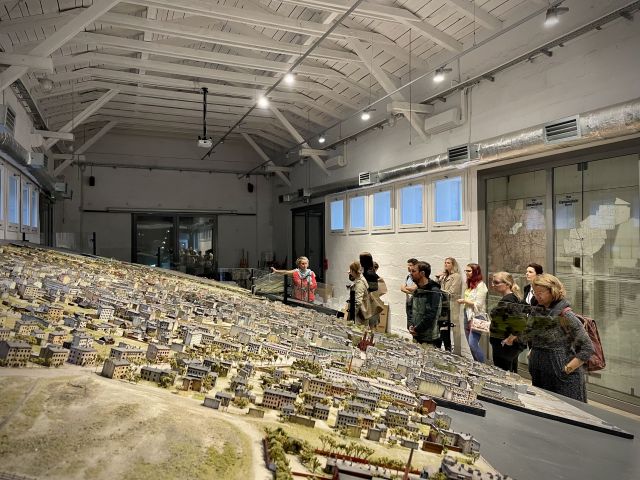 Invited experts – among them Prof. Dalia Ofer - presented their approaches and thoughts both to the topics of microhistory research and using scientific knowledge for other purposes. The participants themselves actively contributed to the seminar by presenting their own work on topics such as the application of a forensic archaeological approach; or digital primary source collections for Holocaust studies and microhistory approaches to research social networks and power structures of the Holocaust in (among others) occupied Lithuania, the Netherlands and Poland. All these research topics were very interesting and hotly debated during official discussions – and informal coffee breaks. The discussions and presentations were supplemented by on-site tours in Lodz, where we visited Jewish traces in the city centre, Radegast station, the Jewish cemetery and the former ghetto area; and Chelmno nad Nerum, the Nazi killing site.
Invited experts – among them Prof. Dalia Ofer - presented their approaches and thoughts both to the topics of microhistory research and using scientific knowledge for other purposes. The participants themselves actively contributed to the seminar by presenting their own work on topics such as the application of a forensic archaeological approach; or digital primary source collections for Holocaust studies and microhistory approaches to research social networks and power structures of the Holocaust in (among others) occupied Lithuania, the Netherlands and Poland. All these research topics were very interesting and hotly debated during official discussions – and informal coffee breaks. The discussions and presentations were supplemented by on-site tours in Lodz, where we visited Jewish traces in the city centre, Radegast station, the Jewish cemetery and the former ghetto area; and Chelmno nad Nerum, the Nazi killing site.
"Crisis of memory"
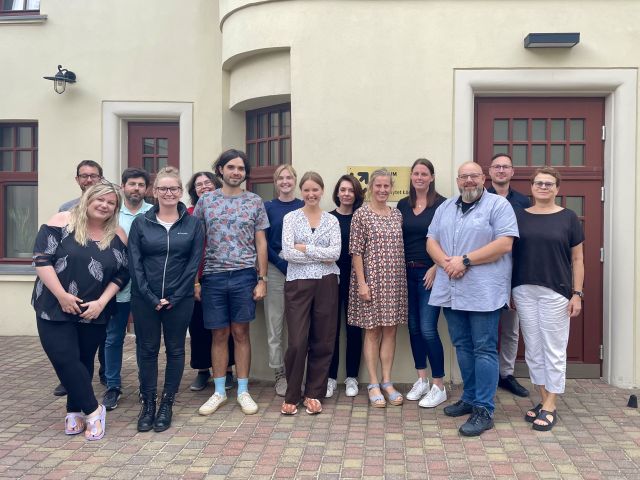 The seminar was a great opportunity for the participants and experts to meet and present their research projects, to exchange and discuss Holocaust research, its sources and approaches. It was also an opportunity to talk about challenges in Holocaust studies – especially in the context of the changing role of scholar/expert due to the “crisis of memory”, related to the passing away of the last survivors and witnesses.
The seminar was a great opportunity for the participants and experts to meet and present their research projects, to exchange and discuss Holocaust research, its sources and approaches. It was also an opportunity to talk about challenges in Holocaust studies – especially in the context of the changing role of scholar/expert due to the “crisis of memory”, related to the passing away of the last survivors and witnesses.
New friends
We found the seminar very inspiring and hope that it will not only bring about new ideas for future research, but also stimulate collaborations with other scholars; as one of the participants summarized: "Not only was it helpful for my own research practices, but I made lasting connections with new friends and colleagues".
